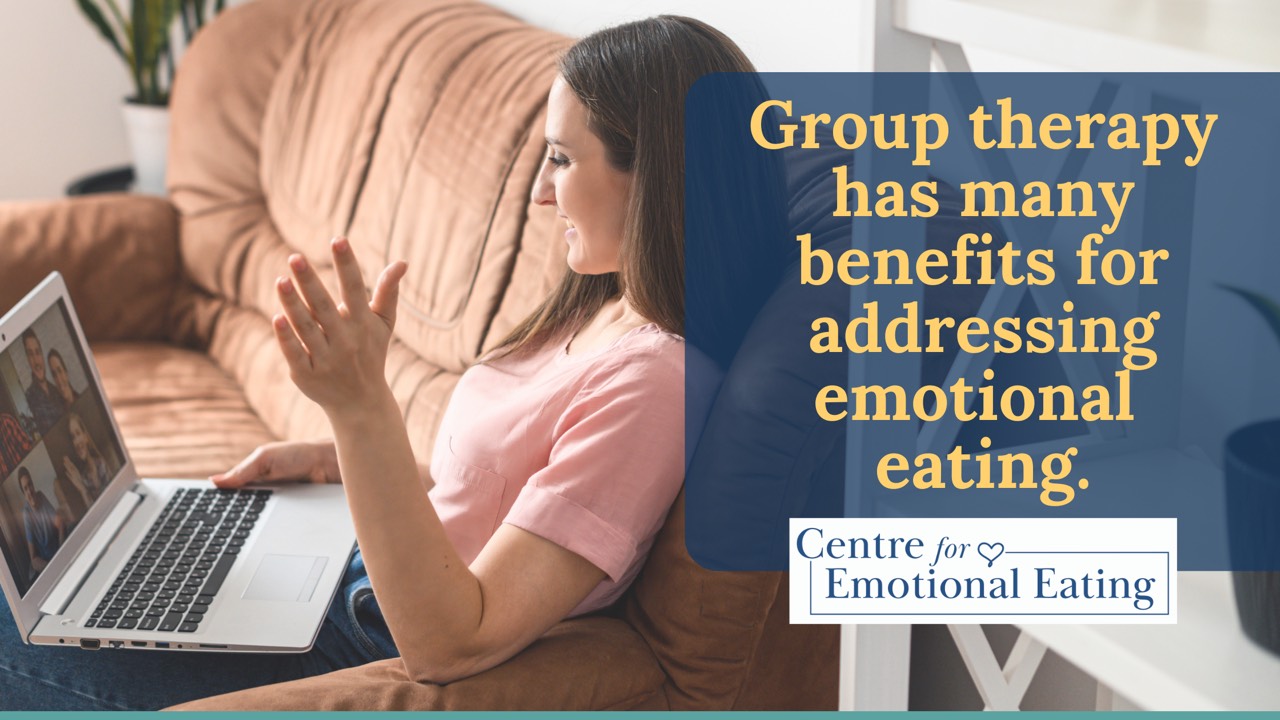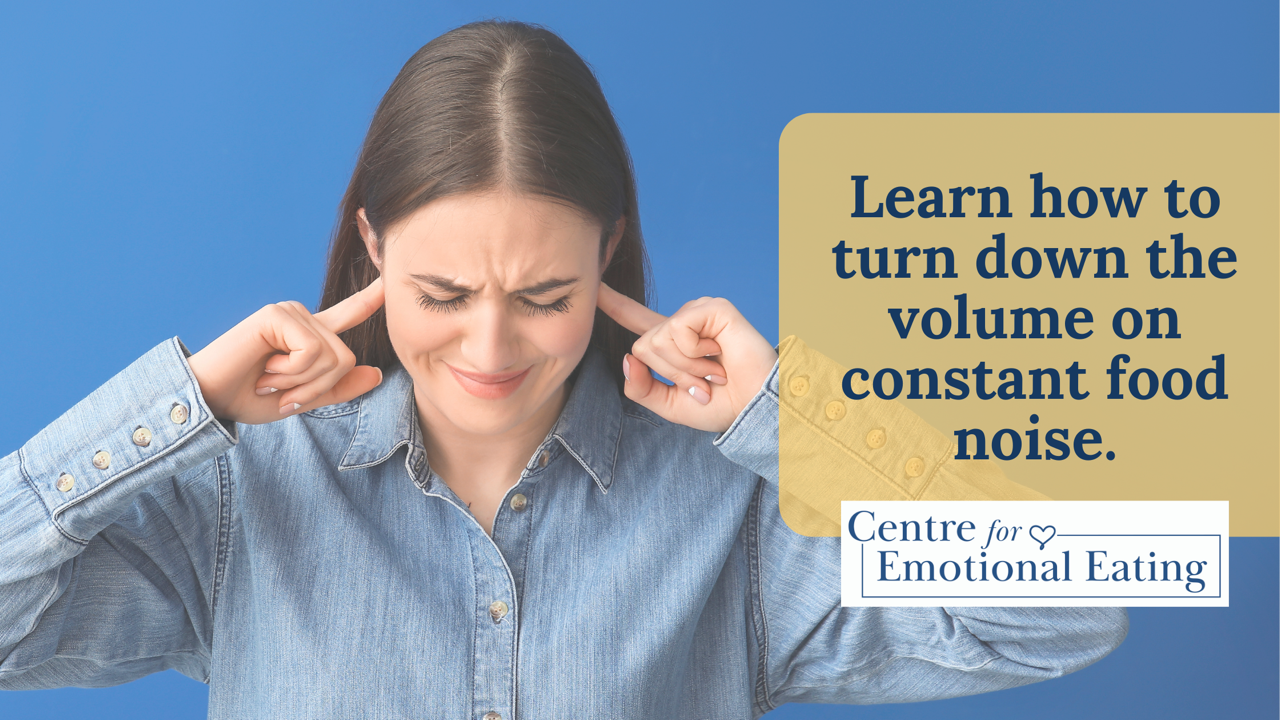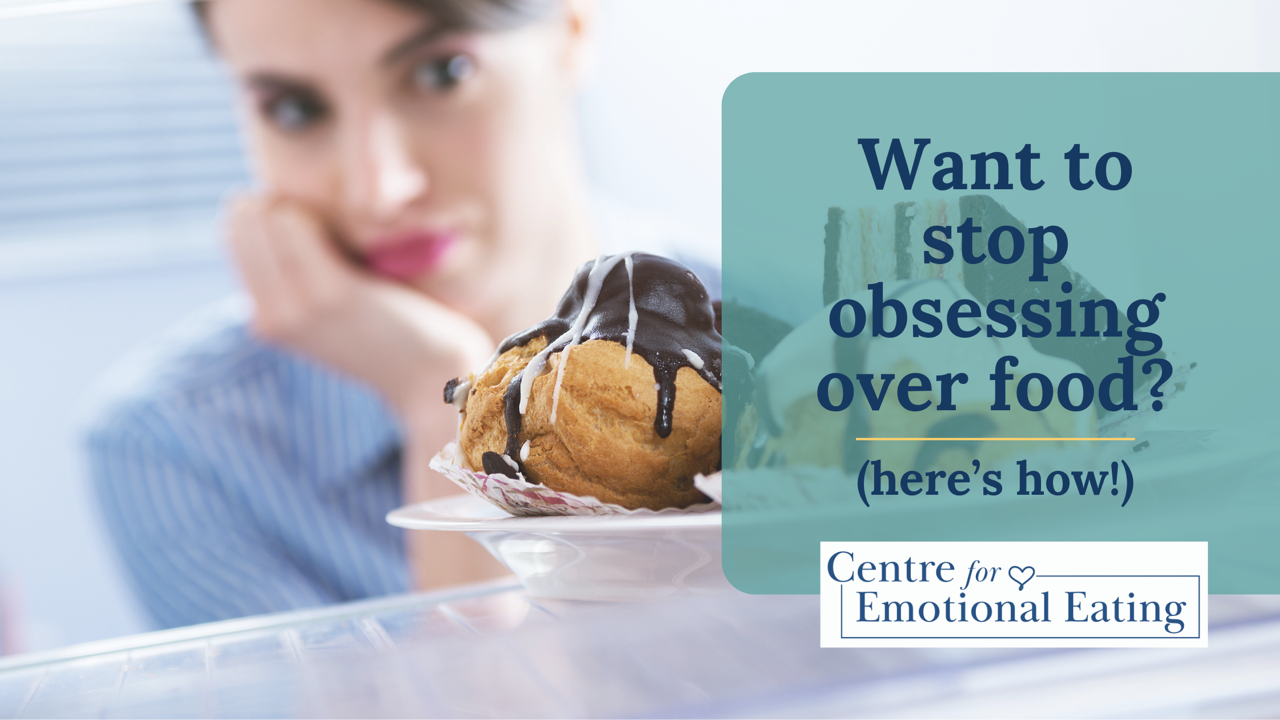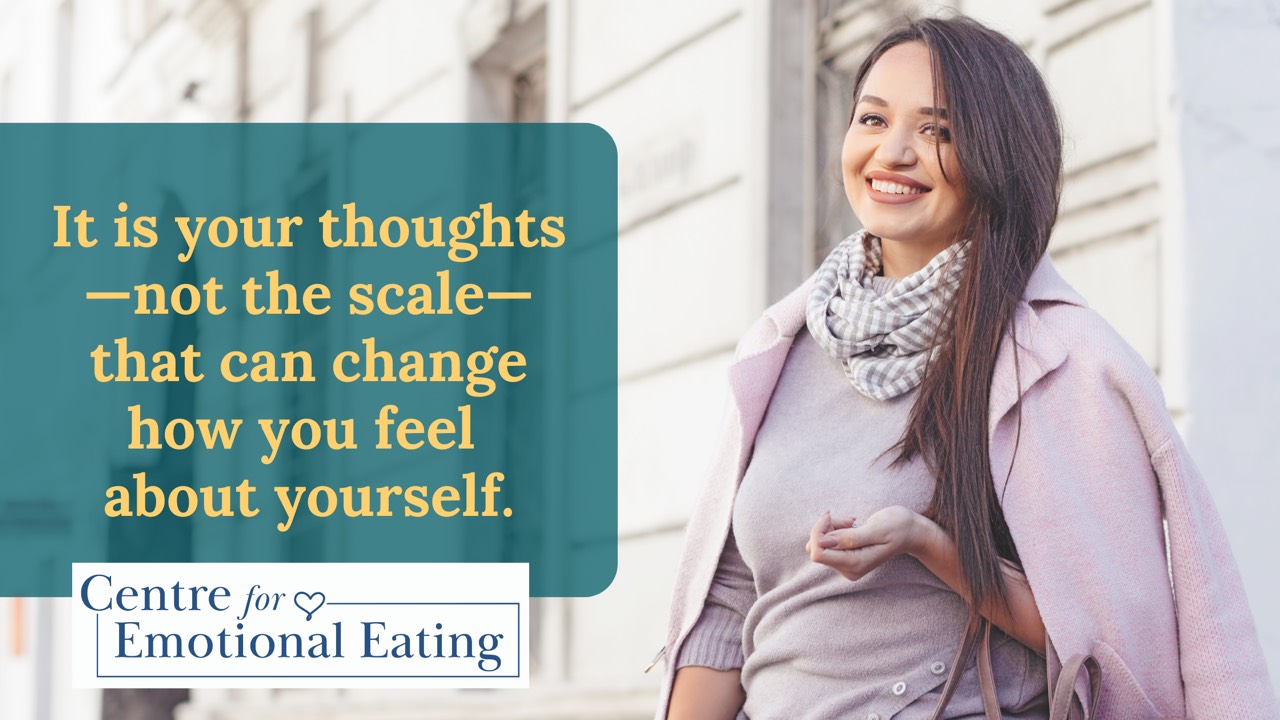BLOG
Find support not just for emotional eating, but all aspects of your well-being.
3 Ways Group Therapy Will Transform Your Emotional Eating

In addition to growing my one-on-one registered psychotherapy practice, over the years I ran emotional eating groups using pre-created content. I could see the power of the group concept, but the material wasn’t the right fit. So, I created The Quiet Craving, a program based on my experience of more than a decade of working with clients who emotionally eat and as a group leader.
I know that many people are hesitant about group therapy, especially when it comes to something as vulnerable as emotional eating. It is something that thrives when hidden and there is a societal belief that eating is “simple” and that you should “just be able to get a handle on it.” Bringing your experiences out in front of others can feel incredibly scary but, again and again, I have seen the transformational experience of group therapy for emotional eaters.
If you’re tired of emotional eating and intimidated by group therapy, this blog post is for you! Read through the powerful ways group therapy can trans...
Food Noise Explained: Why It Happens and How to Find Peace with It

It is common to think about food: what you have to pick up at the grocery store, your weekend dinner out with friends, or even if you want a pastry to go with your coffee.
But when your mind is running a constant dialogue focused on your next meal or snack, how much and when you’ll eat, chances are you’re experiencing food noise. You might have come across this term online, so today we’re breaking down why you can’t stop thinking about food and what to do about it.
What is food noise?
We can define it as a preoccupation with food before, during, and after you eat—so all the time! This can come in the form of questions or criticisms. Do any of these sound familiar?
- “I just ate but I’m still hungry. I shouldn’t eat any more, but I kind of want more potatoes, they were so creamy, probably full of butter…”
- “I have ice cream in the freezer. I shouldn’t eat it. I want it. I’m going to eat it. That was so good, what more can I have? I’ve already had the ice cream, I’ve blown it, I’ll j ...
How to Really Give Yourself Unconditional Permission to Eat

One of the most powerful ways to begin healing your relationship with food is by giving yourself unconditional permission to eat. While diet rules might give you a sense of control, sooner or later you will be feeling out of control, guilty, and shameful when you ‘break’ those rules.
You might have heard of this eating approach before, but what does it really mean? And how can you use it in your day-to-day life? Below we’re breaking down this great step you can take to start loosening your rules around food and start bingeing less.
What Is Unconditional Permission to Eat?
First, it means letting go of the food rules you’ve set for yourself like not eating lunch until noon, labeling fast food as “bad”, or limiting carbs. Then, you give yourself permission to eat what you’re craving, when you want it, and in whatever amount feels right to you. The more you start to lean into this way of eating, the more you’ll notice what foods satisfy you, if you’re hungrier after a workout, and more...
Client insight: “Emotional Eating is my Comfort… And it’s Comfortable”

After working with emotional eaters for more than a decade, it is common to hear from clients that they don’t understand why they keep emotionally eating when it makes them feel terrible.
They can’t stand the overfull feeling after a binge.
They hate hiding from others and sneaking food.
They judge their worth by thinking they need more willpower to get their shit together.
They dread the judgement, guilt, and self-hatred that comes after eating.
They’re ashamed of how much money they spend on food.
For something that is supposed to bring a sense of comfort, these things sound like anything but! So, why are you stuck in this emotional eating cycle when you know it doesn’t feel good? It isn’t about cravings for specific foods or an “addiction to sugar.”
It is because emotional eating is familiar. It is the predictability, even the negative side of it, that offers you a sense of comfort. You know what to expect and our brains are wired to go with what we know. Yup, even when what ...
Client Insight: “I lost weight, but my brain still criticized my body size.”

The following blog posts talks about weight loss. If this is something that might bring up negative feelings for you, please skip this post to protect your mental and physical health.
Weight loss can happen for all kinds of reasons, from anxiety to happiness to stress to a change in routine. So, it should come as no surprise that emotional eaters come in all shapes and sizes! What I often hear from clients who have lost weight on their journey is that they still find themselves criticizing their body in the same way as when they weighed more.
Does that surprise you?
Many people I work with at the Centre for Emotional Eating believe that if they could just “get a handle” on their emotional eating that everything would all into place—their waistline would shrink, they’d be a kinder person, get that promotion, they’d finally do that thing they’ve always want to.
This is why dieting is so tempting: it markets itself as a cure-all when in reality it keeps you stuck in failure mode beca...
Not All Emotional Eaters are Overweight

When TV shows and media show us what an emotional eater looks like, it is usually someone who would be categorized as obese by the BMI chart. Their rolls and double chin are highlighted to create a character that seems lazy or is the punchline in a few jokes. Not only is this incredibly harmful messaging to those in bigger bodies, it also isn’t indicative of the experience of all emotional eaters.
But there is no one body type for emotional eaters, it can affect anyone.
They could identify as male or female.
They could be a preteen or a person in their 50s.
They could be from any cultural background.
They could reach for savoury or sweet foods when an emotion comes up.
What they do all have in common is that is that they eat to sooth themselves. When a feeling comes up that they can’t manage or don’t want to feel, they reach for food as a distraction, to numb out, even to bring some control or joy to the moment.
While from a caloric perspective, it is true that eating more than ...
How to Manage Your Anxiety About Eating in Front of Others

As an emotional eater, chances are there is a part (maybe a big part) of you that dreads eating with others. From family dinners to nights out with friends, to team building events at work, there is just too much opportunity to have our weight and eating habits criticized.
Food shaming is a common minefield when at a gathering that revolves around food. It can start on the inside; our thoughts swirl and we chastise ourselves over what we eat and drink in front of others. As a way to protect ourselves, our mind starts churning out warning thoughts and plans:
“Someone is going to look at me, look at my plate, and tell me that’s why I’m fat.”
“I’m so uncomfortable in my body, everyone is looking at me.”
“I am going to be perfect and only order a salad.”
“Will I fit in the chair at the restaurant?”
Sound familiar? Its likely that whatever thoughts come up from you, they stem from the idea that you will be judged by others at the event. The anticipation building in your mind might bec...
Perfect Eating and Perfect Health?

Let’s talk about the messaging about food we absorb. While the concept is simple—what we hear and how it affects us—breaking down where we get these messages from, and if we should listen to them, is a bit more complicated.
There’s what your parents taught you. This might sound like “finish your plate”, “no dessert until you eat your vegetables”, “don’t be such a couch potato.”
There’s what the diet and food industries are repeating. “Lose 50 lbs in a month”, “workout only 20 minutes to blast fat”, “you too can have a celebrity body!” They’ll have us believe that bread is terrible for us, but a lab-made protein powder is the answer to our weight loss visions.
These two examples may be ones you’ve come to be more aware of as you’ve gotten older, read more, or even worked with a therapist on. But one area you may not know you’re getting messaging about is the medical sphere, like your doctor. It might show up in beliefs like you’re too overweight to get quality medical care (and may h...
5 Tips If You Dread Going to the Doctor

Going in to see your doctor might be something that fills you with dread. While you may be all-too familiar with this feeling, there is a name for what you might be experiencing when you step into a clinic: weight bias.
This is defined as negative views, usually based on serotypes or misconceptions, towards people who are overweight or obese.
Everyday people who are overweight face discrimination, from the size of seats on a plane to critical looks and comments from others. There are prominent beliefs that plus size or obese individuals are somehow lesser than, aren’t considered beautiful, and should be blamed (and shamed) for the size of their waistline. This bias also exists in healthcare.
While there have been strides made in providing training to nurses and doctors that provide primary care, it can still be daunting to go to the doctor for something that *seems* simple like an annual checkup. Here are five things to keep in mind that might help you feel empowered when gathering...
Find Out What Foods Make You Feel Satisfied!

Some foods we reach for when we’re tired ☕ Some foods we reach for when we’re upset 🍩 Some foods we reach for because we have labelled them “good” 🍏
But have you ever stopped to think about what foods you enjoy? Having food satisfaction at every meal—you read that right!—can lead to fewer cravings and the desire to overeat.
Food satisfaction means two things: that you physically respond positively to the food (it makes you feel full, gives you energy) and you also have a psychological enjoyment of what you ate (it’s tasty, “hits the spot”).
You may be wondering: how do I find out what I really like to eat? Believe it or not, this is a very common question. We are constantly told what foods we should and shouldn’t eat. If you’ve been around the diet block, chances are you’ve cut out whole food groups like carbs or fat or sugar at one point or another. Getting rid of this diet conditioning may seem impossible, but it can be a fun experience! Here’s where to start:
Step One: Write...


